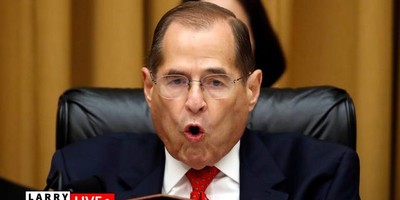So in that spirit, let's pretend that history will show Donald Trump as being elected president Nov. 8. That result is hard to imagine for anyone who has been watching closely since the first presidential debate, which was Sept. 26. Since then, nearly all indications have been that Hillary Clinton is certain to win. So, as a thought exercise before the results are in, let's try to imagine how we could move from that seemingly real world to the "let's pretend" world of President Donald Trump.
One set of clues would come from the ABC News tracking poll. On Sept. 22, before the first debate, the poll showed Clinton leading Trump by a narrow 46 to 44 percent -- virtually the same as the RealClearPolitics average of recent polls at the time. By Oct. 22, after the three presidential debates and one vice presidential debate, that lead had widened to 50 to 38 percent.
Since then, ABC News has shown Clinton's lead narrowing, to 48 to 44 percent Oct. 26. Clinton's 12-point advantage among likely voters had been cut down all the way to 2 points (47 to 45 percent) in the same tracking poll as of Saturday.
Clinton's support level basically stayed the same (within the margin of error, anyway), while Trump's perceptibly grew, cutting Clinton's lead toward statistical insignificance. The ABC News numbers are an exaggerated version of what's happened to Clinton's average poll lead, which was cut from 7.1 percent Oct. 18 to 4.6 percent Oct. 28.
Recommended
ABC News pollster Gary Langer explains the changes as movement by Republican-leaning voters back toward Trump. Like those elected officials who recoiled from supporting him after release of the "Access Hollywood" tape, these voters are gravitating back to their preferred party's candidate.
Focusing on a single poll's results is rightly criticized as cherry-picking by smart polling analysts. But in our "let's pretend Trump won" world, this particular poll sets out with particular clarity a trend that explains what happened.
For one thing, it's a world where voters were given time to ponder, read and perhaps reread some of the Clinton campaign's emails revealed by WikiLeaks. They heard a Clinton spokesman try to discredit the leaks as Russian disinformation, possibly altered. But they may also have noticed the Clinton folks saying they had no time to check on their authenticity.
Over the past week, the emails started getting coverage in mainstream media. The coverage has not been so vivid as the coverage of Trump's denunciations of Miss Universe 1996, but it has been coverage nonetheless. And the stories have been unsettling.
Consider this message from Neera Tanden, head of the pro-Democratic Center for American Progress, to her predecessor John Podesta, chief of staff in the Bill Clinton White House and counselor in Barack Obama's (two smart people who have operated at high levels for a long time): "Do we actually know who told Hillary she could use a private email? And has that person been drawn and quartered?" It was in July 2015, a month after Trump entered the race. Tanden went on: "Like whole thing is f---ing insane." This suggests a certain tension with Clinton's omnipresent, sycophantic aides, Huma Abedin and Cheryl Mills.
And it's unnerving to read Abedin in 2015, years after Clinton's concussion, emailing spokeswoman Jennifer Palmieri, "She's going to stick to notes a little closer this am, still not perfect in her head." There could be an untroubling explanation, but it doesn't suggest the kind of confidence you'd like people to have in a president.
And then we have the revelations of Bill Clinton aide Doug Band on how much money he was raising from various sources for the Clintons personally, for the Clinton Foundation and for Hillary's Clinton's campaign. The Wall Street Journal's conservative columnist Kimberley Strassel is surely not the only one to call the Clintons "grifters-in-chief."
Much embarrassing information about the Clintons has come out on Friday afternoons, so it's perhaps fitting that early last Friday afternoon, FBI Director James Comey announced that the FBI is reopening its investigation into Hillary Clinton's private email servers because of the discovery of additional emails during an investigation of Abedin's estranged husband, Anthony Weiner, in an unrelated case.
Comey's July 5 statement that Clinton, though "extremely careless," would not be criminally prosecuted hurt her in polls; this Oct. 28 announcement won't help. Whether it will send us hurtling into the "let's pretend" world of President Trump is unclear, but it may get us closer.
Do I think we'll get there? No. But I'm less certain than I was last week.
Michael Barone is a senior political analyst for the Washington Examiner, resident fellow at the American Enterprise Institute and longtime co-author of The Almanac of American Politics.
COPYRIGHT 2016 CREATORS.COM

























Join the conversation as a VIP Member